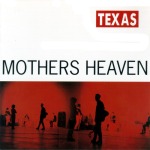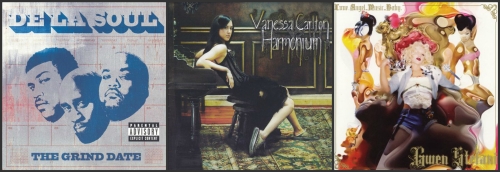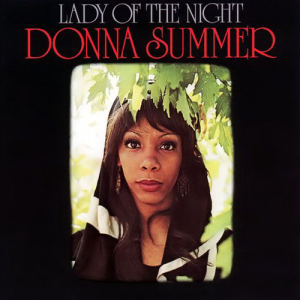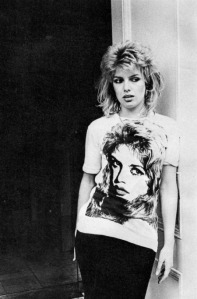
Kim Wilde: RAK Records era
Pop evolution will equate to one name: Madonna. In close succession comes Kylie Minogue and Donna Summer; those names may depend on the age group you’re speaking to. However, one woman preceded Madonna and Minogue while Summer was becoming a “wanderer”―her name is Kim Wilde.
Daughter of 1950’s idol Marty Wilde, Kim’s pedigree was assured and she began her journey in step with the advent of MTV and new wave. Remarkably, the full scope of Wilde’s discography, 13 albums in total, remains unexamined.
The (usually) immortalized image of Wilde is thus: high heeled boots, worn jeans and an unruly platinum mop. It’s easy to see why France dubbed Wilde “The British Bardot”. The expression mirrored a long romance with Wilde who continues to make chart ripples throughout Europe today. That’s not even touching on Kim Wilde being the most charted woman in England during the 1980’s. However, let’s not get ahead of ourselves, instead let us begin at the beginning.
“There was music & there was rhythm & there was something I can’t explain”.
1980-1983
Wilde, 20 years young and fresh out of art college, signed to the imprint RAK Records. What followed was the eponymous debut tailored for the music television generation. From the ironic “Brit creates nascent theme for disenchanted American youth” of “Kids in America” to the punk slathered “Chequered Love,” the singles of Kim Wilde seized the zeitgeist of the disco drop-off, on both sides of the Atlantic, perfectly.
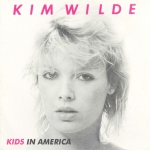
“Kids in America” single cover
Album fare for Wilde’s self-titled affair didn’t dally; her hand at esoteric story songs, like “Tuning In, Tuning On,” was superb. The LP was written wholesale by her father and brother, Ricky Wilde. Due to this, Kim’s critical favor always orbited wariness with the British music press.
The best was yet to come though (!). In a move that betrayed her pop intentions, Select (1982) aligned itself with the New Romanticism movement. As the only woman in this sub-genre, the commercial reach of Select was limited to what it could have achieved. Wilde sussed out a balance of rock and synthesizer; the jittery “Ego,” the political panic of “Action City” and the desolation of “Cambodia” became favorites.
By the time Wilde’s junior record popped up, she’d embarked on a major tour in England and acquired all the “new kid on the block” accolades. Catch As Catch Can (1983) marked her first chart bust, but the record surpassed Select with its art. This time the guitars were ornamental as Wilde moved headfirst into synth-pop. Only the kooky “Love Blonde” (to which later Kylie Minogue’s own “2 Hearts” owed its roots) slightly nodded to the (polished) riff grit of Kim Wilde.
From the experimental (“Dream Sequence”) to politely danceable (“House of Salome,” “Dancing in the Dark“), Wilde’s third album played like a menagerie versus a record. The commercial failure of Catch As Catch Can overshadowed its creative merit; Wilde said goodbye to RAK and joined MCA Records.
“Look in the mirrors & see the heat of something new!”
1984-1988
When Wilde arrived at MCA, music was changing. Disco hadn’t (really) been banished, it became “dance music”. That development led to the 12″ format that took music media by storm and created demand for what is now commonly known as the “remix”. Into this scene stepped Wilde, ready to prove herself as a songwriter and beat back the growing criticism against her.
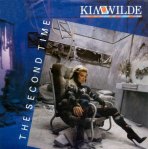
“The Second Time” single cover
Teases & Dares did just that; its glossiness drew from the rhythmic propulsion of “The Touch” and steely sex of “The Second Time”. Those singles were her primary 12″ mixes and led to an “on again, off again” courtship with dance. Wilde contributed her own compositions this time, two of which smarted in their delicacy: “Fit In” and “Thought It Was Goodbye”.
Wilde held fast to the avant garde vestiges of her RAK days: “Bladerunner” (a homage to the 1982 dystopian flick of the same name) and “Suburbs of Moscow”. The only miss was the “Love Blonde” xerox of “Rage to Love,” ironically the biggest hit from the soft selling Teases & Dares.
Not seen at the time of its arrival as Wilde’s transitional doorway, 1986’s aptly titled Another Step is remembered for its dark Hi-NRG recasting of The Supremes’ “You Keep Me Hangin’ On”. Topping the singles chart at home in Britain, Wilde (briefly) conquered America with “You Keep Me Hangin’ On”. Wilde was the fifth British woman (out of six) to secure the pole position on the U.S Singles Chart.
Another Step was more than a Supremes cover, the LP platformed the 26 year-old reveling in shaping straight-ahead, smart, sexy pop music. Even with the gawky “rock & groove” bits of the initial side (the title track and “The Thrill of It”), Wilde landed sonic strikes that boomed: the anti-boys splendor of “Hit Him” and the “pop starlet playing R&B dress-up” of “Say You Really Want Me”. The latter’s music video was banned, deemed too steamy.
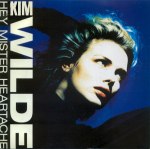
“Hey Mister Heartache” single cover
The second side possessed no less than five sophisti-pop smoldering pieces; “She Hasn’t Got Time For You” and “Missing” were the stars of the quintet. Another Step, with a smidgen of outside assistance (Dick Rudolph, Rod Temperton notably), was primarily piloted by Wilde herself; Dad Marty and brother Ricky were solid back-up.
Victorious, Wilde widened her audience and took an expressive step ahead. Sales were stable, but they were nothing compared to the approaching blockbuster of Close (1988).
The Close LP spun off hits in England and Europe: “You Came,” “Four Letter Word” and “Never Trust a Stranger” to name three. “Never Trust a Stranger,” a breathtaking paean to Donna Summer, was the stunner of the set.
A blend of youthful energy and austere tastefulness, Close serviced a variety of outlets and became Wilde’s biggest seller. Sweetening it all, Wilde was invited to open the European leg of Michael Jackson’s Bad World Tour. The only drawback was that Close couldn’t follow-up on the flashes of Wilde’s U.S. favorability. It was a shame as the R&B-pop tingle of “Hey Mister Heartache” wouldn’t have been out of place among the Exposé and Taylor Dayne hits of the day.
“Towards the open sky, gonna spread my wings & circle above”.
1990-1996
Emboldened by Close, Wilde’s Love Moves (1990) was indeed a labor of love. By now, she and her brother Ricky’s writing had improved immensely. Building on the adult contemporary element of Close, Love Moves was softer. Next to the urgency of Close, many wrote Love Moves off as an inferior follow-up; sales and critical reception were mixed.

“Love is Holy” single cover
Listening closely, the progression of Wilde’s voice astonished. Fuller and adept at song reading, she supercharged the singles “It’s Here” and “Time” (two of her prettiest entries) and non-singles with emotion: “Storm In Our Hearts,” “In Hollywood”.
Only the naiveté of “World In Perfect Harmony” grated, but its genuine affability was sympathetic. Wilde remained in demand as a performer, David Bowie had her open for his Sounds+Visions Tour the same year.
Stung by the apathy toward Love Moves, Team Wilde enlisted songwriter / producer Rick Nowels to join them on Love Is (1992). Shifting the gear higher (the guitars returned), Love Is gave Wilde a minor charter with the Belinda Carlisle-esque “Love is Holy”. Far better material strung throughout the album; the electric “I Believe In You” and wistful “Million Miles Away” saw Wilde sharpen the formula from Love Moves.
The problem was Wilde’s listening group had changed. She’d long since lost the hipster crowd indicative of her RAK period, and the youth market she flirted with at the dawn of her MCA tenure had moved on. Wilde had aged out into a niche base.
With all of that, Wilde logged a decade and three years into popular music, a milestone to be celebrated. An abridged “singles collection” appeared in 1993 with two new cuts. Of the two, Wilde’s take of Yvonne Elliman’s “If I Can’t Have You” was delightful, if dated (production wise). Wilde toured Europe, Australia and Japan in lieu of her singles package in 1994; the preparation for her next project had begun too.

“Shame” single cover
Nineteen-ninety five unveiled the controversial Now & Forever LP. Departed from her rock and synth,Wilde based herself in R&B textures that spanned acid jazz (“C’mon Love Me”) to hip-hop soul (“True to You”). Wilde had been accruing a (somewhat) soulful presence since “Say You Really Want Me”; the bulk of Love Is temporarily halted that momentum.
Wilde’s vocals bore a heretofore unseen control (“Hypnotise*,” “Back to Heaven”) and the clean mid-tempos were contagious. Hampered by length and a few dated house duds (“Heaven”), its inherent charm of being Wilde’s vocal showcase was lost. In spite of the obvious passion that went into the recording, its singles “Breakin’ Away” and “This I Swear” couldn’t save what would be her final MCA record.
Outside a curious rendition of “Shame” (originally by Evelyn “Champagne” King) in 1996 as a “single only” release, Wilde’s focus shifted. The West End beckoned and she heeded its call to star in the rock musical ‘Tommy’. Constructed around the tunes of The Who, Wilde gave a lauded performance and met her future husband Hal Fowler on set. Wilde decided to take an indeterminate break from music; she’d pursue family and a lucrative career in horticulture / landscaping.
“Now’s the time to look further to the future”.
2006-Present Day
Wilde made her homecoming to music with Never Say Never, via EMI Germany, in 2006. The German deal made dollars and sense as Wilde enjoyed European returns throughout her career. The mass of Never Say Never was set-up by The Wilde’s (Kim and Ricky) with Uwe Fahrenkrog-Petersen; a European pop / rock sheen (think Roxette) steered the sound.
Between new material and revisited classics, Never Say Never was a safe bet. The day-glo romance of “You Came” (her second score with this song) and the bounce of “Four Letter Word” stood as the winning pair of the 2006 resets. Original material was so-so, though the electronic buzz of “Forgive Me” and “Maybe I’m Crazy” were divine for the Teases & Dares crowd. The record became a fair victory for Wilde.

“Lights Down Low” single cover
Cause to cheer came with Wilde’s first LP of new work, Come Out and Play (2010); this record was courtesy of Sony Music Germany. Kim and Ricky’s creative partnership cast an eye to the RAK eon with a modern rinse; additional album assistance came from Henrik Guemoes. Guitars and synths came together, à la Select, on two of the album’s best points: “Lights Down Low” and “I Want What I Want”.
It cannot go without mention that Wilde’s two “comeback” recordings had her alongside a host of guests: Nena (of “99 Luftballons” fame), Charlotte Hatherley, Nik Kershaw and Glenn Gregory (of Heaven 17). Previously, Wilde’s contributions had been limited only to Junior Giscombe (on Another Step and Close) and Jaki Graham (on Love Moves).
Twenty-eleven ushered in Wilde’s covers record, Snapshots. Excellent song choices and the chemistry of reverence / reinvention were glimpsed on Wilde’s spins of Tasmin Archer’s “Sleeping Satellite,” Cilla Black / Dionne Warwick’s “Anyone Who Had a Heart” and Suede’s “Beautiful Ones”.
By this time, Wilde’s touring abilities were keen and she boasted defining performances in this phase of her career. Recently, Wilde wrapped a series of Christmas shows inspired by her (inaugural) holiday LP, the indie-issued Wilde Winter Songbook (2013). The record was her first commercial effort in England since Now & Forever.
It’s simple to dismiss Wilde as a “nostalgia act”; objectively, one can’t deny that Wilde’s music is as strong, curvy and endearing as any of her peers and followers. Yes, that includes Madonna.
[Editor’s Note: *-denotes British spelling. Kim Wilde’s discography is readily in print, digitally and physically, barring: Love Moves, Love Is and Now & Forever. The latter three can be purchased in used music retailers, all are imports. For current information on Kim Wilde, visit her official website. Special thanks to the Marcel Rijs official fansite, Wilde-Life.com.-QH]





